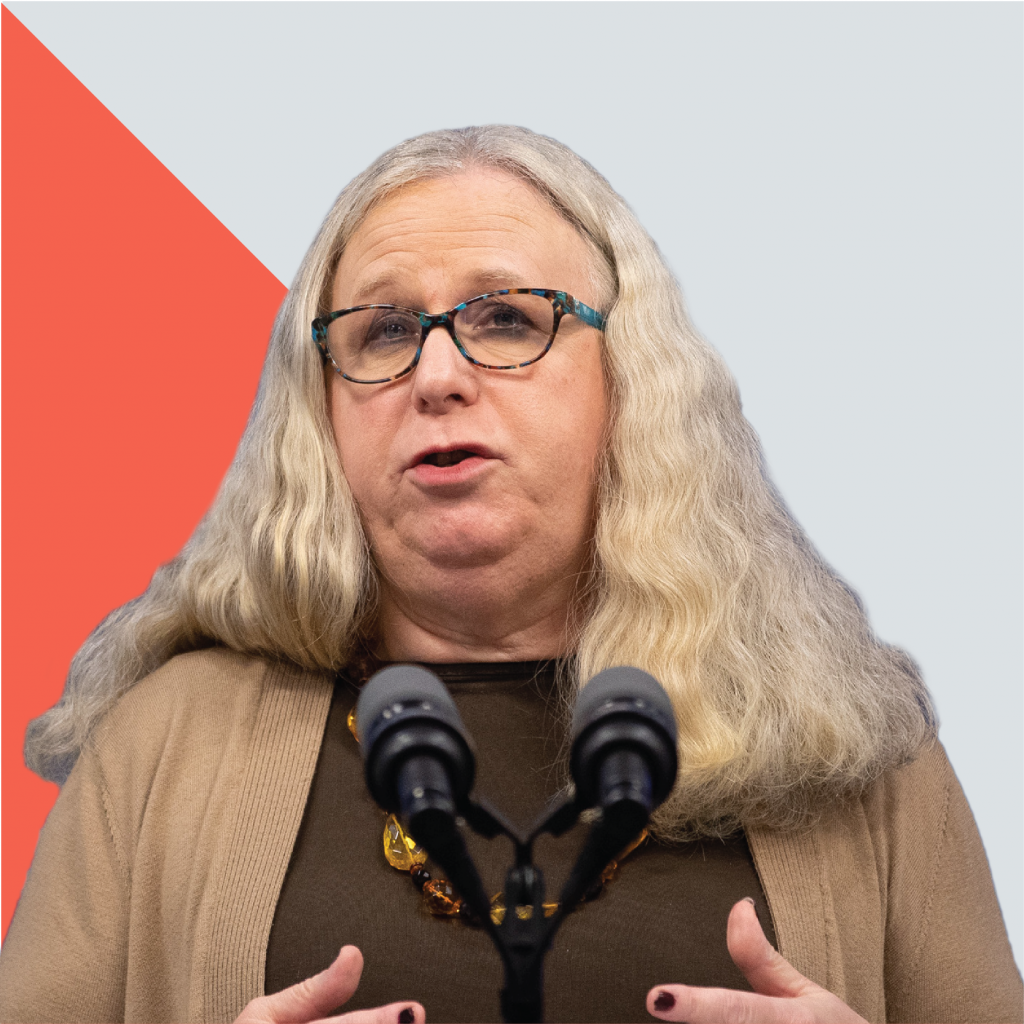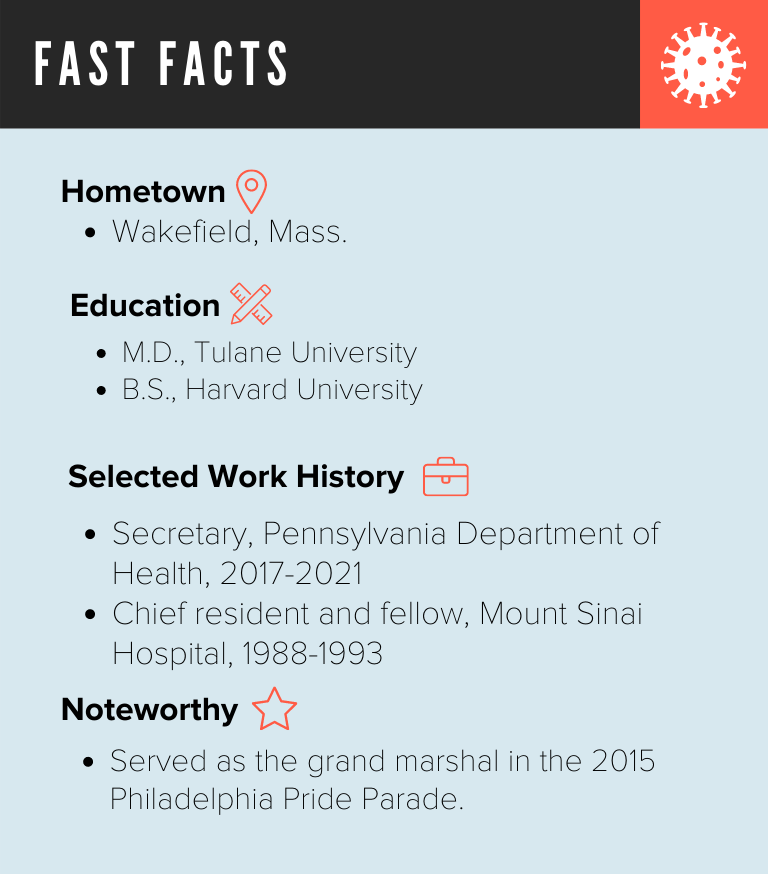Assistant Secretary of Health for the Department of Health and Human Services
Fast Facts

Trailblazing Health Official

LEARN MORE
Vignette, a service through National Journal Research, is an essential tool for government affairs teams that need to understand the people behind the policies.
Click here to request a demo of the Vignette database, or email njvignette@nationaljournal.com to speak to someone about your access.
In announcing Dr. Rachel Levine’s nomination to the Health and Human Services Department in January, President Biden called her a “historic and deeply qualified choice to help lead our administration’s health efforts.”
Levine’s confirmation in March made her the first transgender person to serve in a Senate-approved federal post. Prior to her federal service, she set a similar precedent as Pennsylvania’s secretary of health. At the time, she told The Washington Post, “With very few exceptions, my being transgender is not an issue.”
Indeed, Levine prefers to focus on medicine. She trained as a pediatrician at Mount Sinai Hospital in New York City before moving to Penn State’s medical center, where she founded its Eating Disorders Program to address adolescent health and nutrition, and worked as a professor of pediatrics and psychology.
As Pennsylvania’s health secretary, Levine focused on noncontroversial subjects like seasonal-flu prevention and rural health care expansion, as well as hot-button issues like medical marijuana and LGBTQ+ health. When the pandemic hit, she quickly became a nationally recognized leader on COVID-19. In addition to the heavy lifting still to do on the coronavirus, Levine anticipates facing a litany of other issues at HHS, including the opioid crisis and health equity.
Approach and Motivations
Excerpted from Rachel’s Vignette profile
Employs a multidisciplinary approach in addressing health issues; transgender identity is key to advocacy for LGBTQ+ health considerations for doctors and regulators
- Specializes in the intersection between behavioral mental health and medical issues; used a multidisciplinary approach that included psychiatrists, pediatricians, and nutritionists to combat eating disorders, and later combined local, state, and federal resources to combat the opioid epidemic and the COVID-19 pandemic
- Willing to use unconventional methods to work around regulations when lives are at stake; composed a “statewide prescription” for naloxone, which previously could not be administered by police officers or without a prescription, to ensure that overdoses could be prevented without medical professionals present
- Identity as a transgender woman informs her approach to health and politics; was a leading advocate for transgender care in Pennsylvania’s health system, and worked closely with Gov. Tom Wolf to encourage inclusion in his administration
- Emphasizes personal interaction and early engagement when discussing transgender issues, advocating for medical schools to include curricula to address health issues unique to transgender individuals; believes that discrimination is often precipitated by ignorance
- Calls for collaboration between the federal government and local health departments in combating COVID-19 and enacting testing, mitigation, and vaccination strategy
Not a Vignette subscriber? You can purchase a digital book with in-depth profiles on everyone featured in this special report.
To learn more about Vignette, or see the platform in action, request a demo here.

